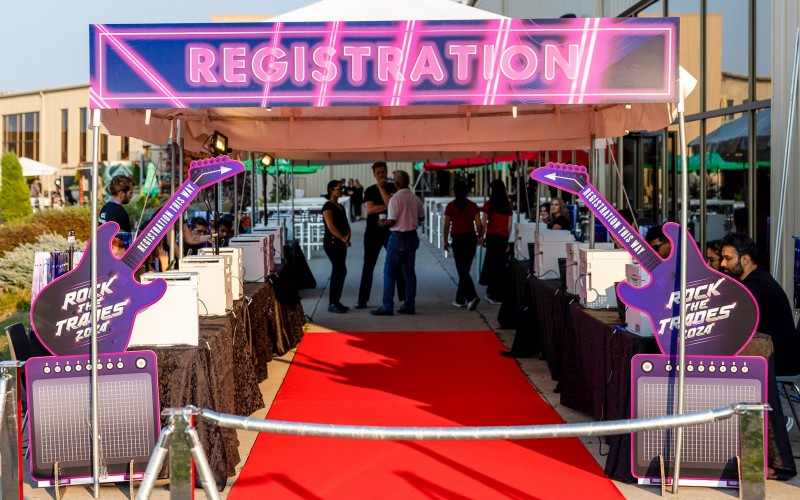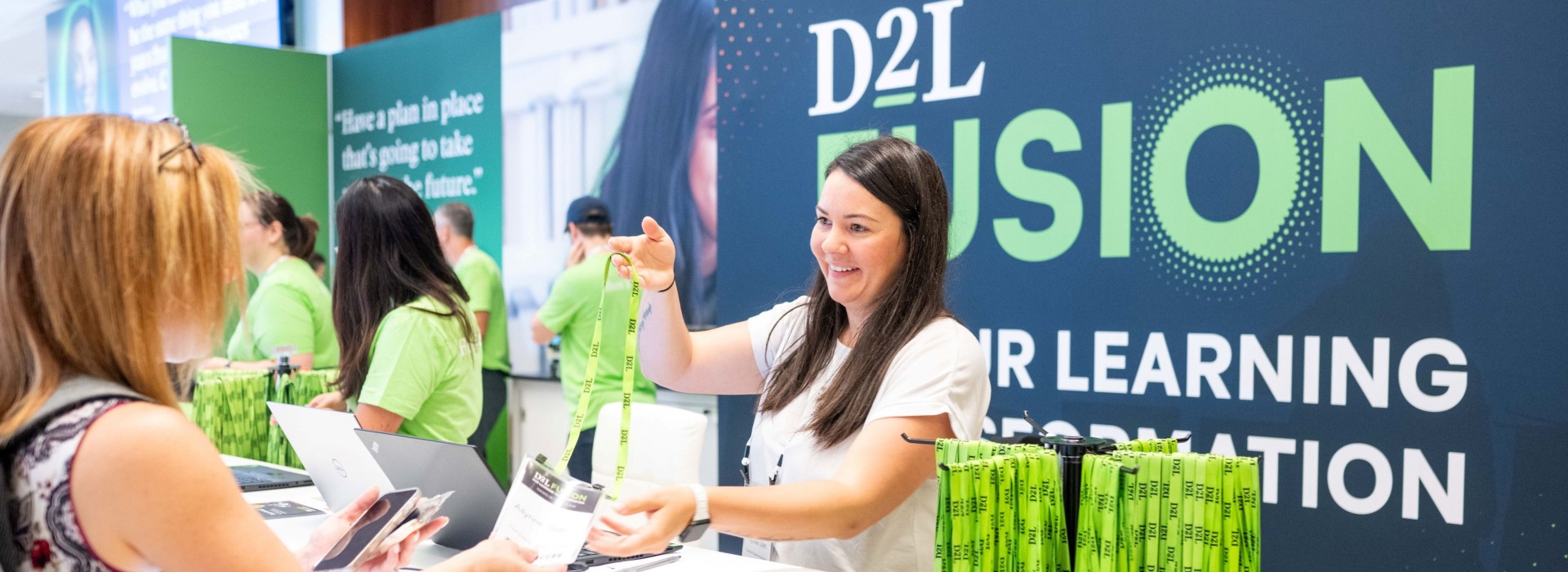How Do You Plan For Event Success?
Event spend has dramatically increased. Budgets are tight. Demonstrating ROI is top priority for event planners. You can be an amazing event planner, but you need to be a marketer first. Telling your executives that you heard from attendees it was the best event ever is not enough to justify your event budget. In delivering clear value to the business, backed by numbers - getting buy-in for future events from your stakeholders will be much easier. When your CMO asks you about Marketing Attribution - you can say I've got that! You will be regarded as a trusted advisor, a valuable marketing team member and go-to resource on event strategy.
Event Organizers need an event technology plan. That's it. It's the answer to measuring event success.
But where do I start you ask?
Your event project brief comes first. Outline your event goals and objectives and event key performance indicators. Too often we see event attendance and evals as the only form of measurement, but you should be tracking financial, marketing and sales metrics, along with brand awareness and perception and the attendee experience. Your project brief will be used as your blueprint in building out every stage of your event. Then, the right event management software will produce the event data you need in order to measure event success. You will walk into the c-suite and deliver valuable insights and results.
Don't know where to start? Ask us about putting together your event technology plan. Start by meeting our team of developers and customer experience and registration managers with event tech experience across solutions and platforms.
Use this handy check list throughout your Event Planning Process:
Website and Registration Set-up: What information do you want to gather beyond name, title, org? Are you doing account-based marketing? Now is the time to integrate your registration solution with your company's CRM. Targeted invite campaigns that attach a code to the url in a customer's invitation to identify them, allows an alert to go to the sales rep that their customer has registered. Then throughout the project lifecycle you can target event information, along with content that is specific to that customer's interests.
Personalize your invitations: The companies that see event success from their demand generation campaigns differentiate themselves by personalizing their communications along with the event experience. If part of your event planning process doesn't include sales readiness you need to start doing this tomorrow! The most effective marketers I've seen in action over the years are brilliant at building internal relationships and getting their sales teams and the c-suite excited about the event and arming them with marketing material to share with their customers. An invitation that can also be deployed directly by a sales rep who has the relationship with your target audience will see better results than a mass email campaign with the title of someone your customer doesn't know or has never met.
Website traffic can be measured, including tracking incomplete registrations and at what point they stopped. There's been a lot of event industry noise around avoiding a lengthy online registration process - that you risk annoying your audience and discouraging them from attending your event. With the right targeted campaign, you can avoid asking too many questions b/c you will already know much of the information from the code you have attached to your event invitations.
Registration Pathways: Understanding the data you want to capture will factor into the registration set up. Different pathways for targeted invite-only sessions can be programmed into your registration site, discount and promo codes can all be tracked.
Agenda Building: This is so key - have your agenda ready on your event website early in your planning process. It will be a major factor in incenting customers to attend your event. Gaining insights into the selections your customers make will help you understand what is resonating and further drive decisions around event content and event logistics such as room assignments/set-up.
The Check-in Experience: What will your name badge capture? Barcodes assigned to each registrant will help with lead scanning into sessions and for engaging with sponsors. Understanding which of your sessions were most popular will be an important component in post event analysis. The data will assist in driving further targeted marketing efforts and measuring the event's effectiveness.
Event App: Your mobile app should integrate with your registration system so that all the data automatically populates in the app. This seems so simple, but many planners spend an enormous amount of unnecessary time making manual updates in various platforms simply because they don't integrate with one another. Your event app will play a dual role in providing lead capture, tracking attendee behaviour and sponsor interaction.

Onsite Experience - Lead Generation & Networking Opportunities: Remember that data you've collected. Now you can personalize the attendee experience, extend invitations to specific roundtables, networking and exclusive social events. You will have the industry leaders with the similar interests in the same event sessions, and they are gaining valuable networking opportunities.
Event Production - Implementing the right event tech with your mobile app will allow for live polling and Q&A during sessions for your in-person, hybrid and virtual events.
Sponsors and ROI: Providing your sponsors with a positive experience driven by engagement, high value networking opportunities that translate to revenue, will demonstrate that your business events are worth participating in. Recently, event gamification has become one of the key components of our event tech and mobile app integrations - high touch moments that encourage sponsor and attendee interaction has been a key contributor to high sponsor satisfaction rates.
Event surveys: Surveying your audience and measuring attendee satisfaction goes beyond asking them if they liked the food and beverage and evening event. Your questions need to be targeted to measure brand awareness and perception, and potential revenue. This is another hot topic in the event industry - don't make your event survey so cumbersome your audience bails on completing the survey. Talk to us about our best practices in crafting your event survey and measuring event success.
Before They Go: Want to set-up success for your next event? Provide a discount code for next year's conference to attendees while they are with you at your current event.
Post Event Report: The right event technology will deliver the right metrics.
-
Attendance - More than just results showing total number of attended - because of the work you did at the demand generation and registration stage of your event you can also measure:
-
Event revenue - this can be tracked and reported with details on when the revenue came in. Useful for planning future events and reporting to your CFO and finance team.
-
Customers vs prospects - along with first time attendees vs returning attendees.
-
How many accounts? Points for multiple people from an account.
-
How many attendees are in your pipeline, where are they in the pipeline so you can also track conversion rate.
-
Sponsor: Revenue Reports can be generated along with sponsor satisfaction so you can gauge the value of your event to your best partners and if they will be returning.
-
And of course, your total event costs, including cost per attendee, cost per lead, how many were attached to your event promo codes etc. Your event technology is the gift that keeps on giving!

Virtual Events
In my humble opinion, virtual events deserve their own category.
Engage all audiences anytime, anywhere. Livestream keynotes. Have your content recorded and on demand in your virtual platform and use the data you collect to target further marketing campaigns and relevant customer promotions. Create an environment for further engagement.
Some insights from a client's recent hybrid event where we managed all event technology and hosted a virtual event in our virtual venue platform: In person attendees: 650. Virtual attendees 785. Keynotes and breakouts are available in the virtual platform along with sponsor exhibits and library of resources that updates daily.
All sessions are interactive with Q&A and polling. How great is it to hear applause and laughter while watching the stream! But more importantly, how amazing is it for an online attendee to have the ability to ask questions and participate.
The platform is open on-demand and historically we see another 500 attendees log into the virtual platform to access the event content on-demand. Content streams live and we make it available on demand the very next day.
Final Note to Event Planners
Effectively implementing your event technology is the key to presenting useful insights to your organization and to securing approval for future events.
More Resources:
This is a great infographic to use as a resource in preparing your post event report - see this post by Nicola Kastner, CEO of Event Leaders Exchange
Other helpful resources.



